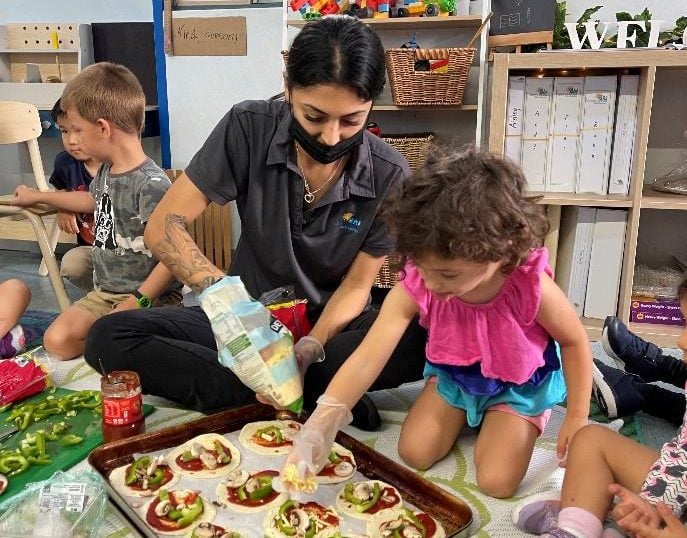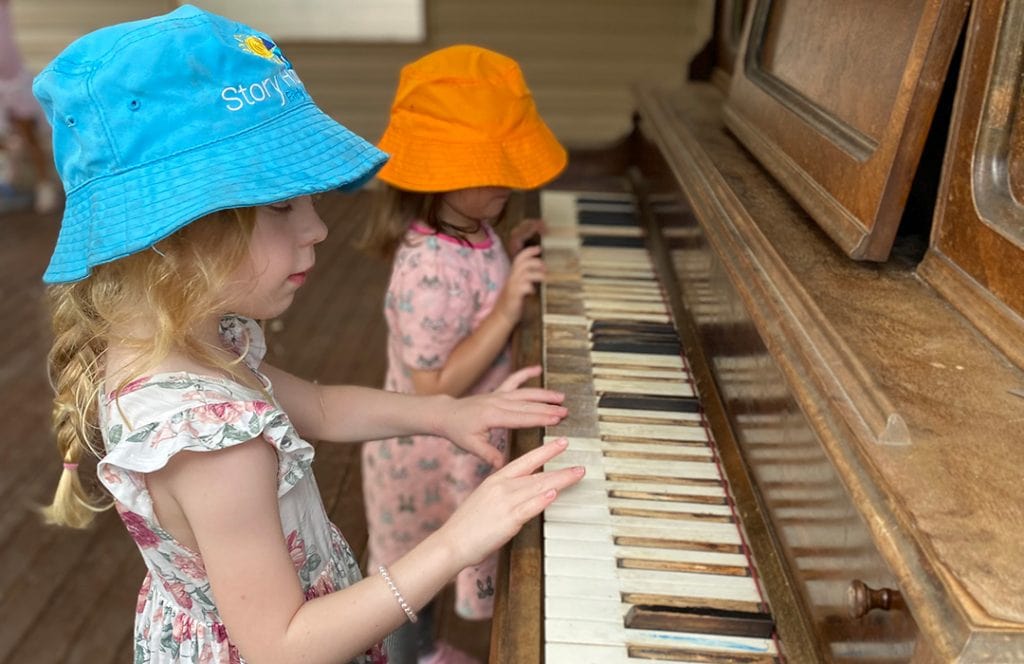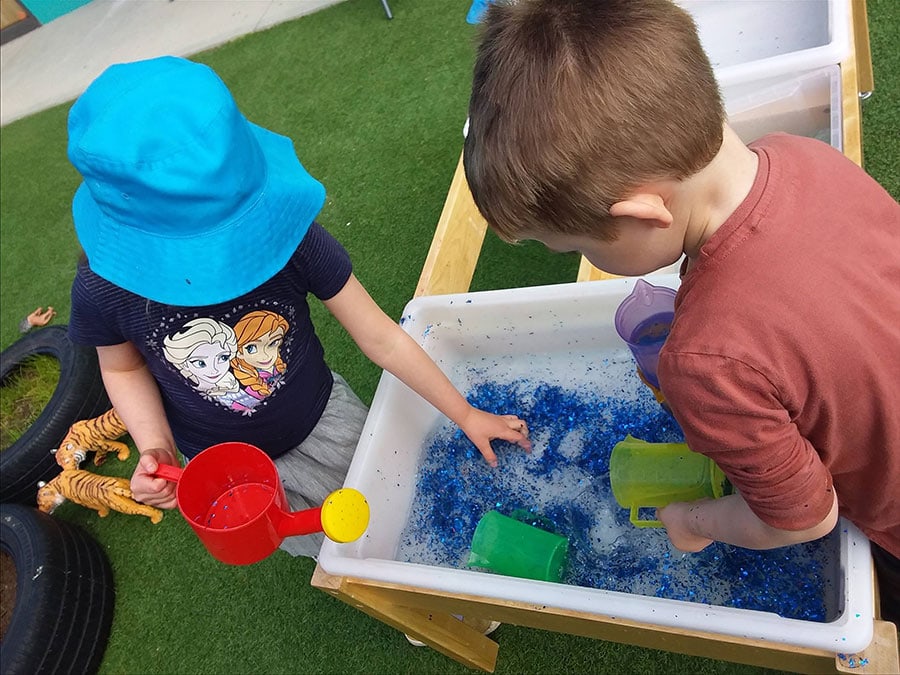It’s not a secret that parenting and managing a family can be a lot to juggle. In the craziness of everyday life, it can be tempting sometimes to ask yourself just how important it is to establish and maintain a routine for your family.
However, while it does take effort to set up (and maintain) structure for your child, consistent routines have huge benefits for your little one and their journey through life – both in the long-term and the short term.
Here are some of the top reasons that routine is important for children.
Routine Introduces great habits for life
A positive and enriching routine lays down the foundations of a healthy life, where knowing when to eat, sleep, rest, learn, nourish, self-care, and play become natural.
For many of those who are definitely not morning people, the idea of being able to spring out of bed at 5:30 am or 6 am with energy to spare sounds like a far-away dream – sought after but not likely to happen without a lot of coffee in the mix.
However, imagine if 5:30 am was the wake-up call you grew up with. For some who live in the country, this is the norm, and mornings are easy.
The same goes for exercise – if you grew up taking long walks in the evening and active adventures on the weekend, you likely wouldn’t think twice about doing the same as an adult.
And the same can be said for eating healthy, balanced meals with plenty of vegetables and so many other positive habits.
Not to mention the benefits of getting into the habit of brushing teeth and looking after personal hygiene on a regular basis!
Sitting down to prioritise all the elements a healthy, positive and fulfilling day should entail and mapping this out into a schedule is an excellent way to ingrain these into a daily habit that will set great precedents for life ongoing; making exercise, sleep, nourishment, a great balance, and self-care, all second nature.
A head start for life
Creating a daily structure packed with all of the healthy and beneficial elements of a well-rounded life creates great habits for your little one that become the ‘norm’, setting this positive tone for the rest of their lives.
We all want to see our children grow into successful and happy adults that flourish in life. Creating routines that prioritise their health, happiness and well-being early on sets them up for this future, getting them a great head-start to life as they find comfort and ease in maintaining the structure that adult life demands – and in the nearer future, setting them up for success at school and study.

Practice makes routine habits easy
The more you do something, the easier it feels. The repetition of doing the daily parts of a set daily structure equates to practice, which makes each individual step much easier.
While your child may find it hard to get into the rhythm of waking up, eating breakfast and getting ready for child care initially, once they’ve practised the same routine for some time, it will become second nature.
Keeping to a set structure can make your life as a parent much easier in the long run. It’s just a matter of hanging in there until the steps of the routine become an easy habit.
Routine forms a great foundation and framework to learn, play and grow around
Routines can help to support learning, growing and receiving nourishment. So many factors intertwine to foster the best environment for little minds, from eating nourishing and healthy food that fuels young bodies and minds to ensuring the right amount of sleep to cement the day’s learnings and turn this into long-term memory and provide energy for the very next day.
A routine helps to ensure that your little one gets the food and nourishment they need at the times that it will best support their growth, mood and learning and ensure that they get enough rest and play.
Routines support harmony within the home
Routines can help your family to operate as one harmonious unit, with everyone knowing what they have to do and what they can do to help. This creates room for a team environment – and a well-oiled machine, resulting in less stress throughout the mornings, daytime and evenings.
When your child ‘knows the drill’, and what is expected of them in the morning, during the day and in the evening, they’re much more likely to follow through (eventually).

Routines can help create more time together
A profound saying is that we should ‘schedule our priorities, not prioritise our schedule’ – meaning, if something is important to you, ensure that there is space for it within your schedule.
Creating a day-to-day plan allows you to figure out when the best times are for your family to get together and spend some quality time and lock away a time for this to happen.
Without having a set routine, it can be all too easy to run out of time in the day before you realise it. So it’s important to schedule self-care, wind-down time, and time spent together.
Routines can help create focus
Structure and routine can help to create focus by clearly defining when it is time to relax, when it is time to play, and when it is time to listen and learn. This helps children to understand when they need to focus while assuring them that they will not miss out on playtime either.
Structure and routine can be highly beneficial for children with differing abilities and cognitive or attention difficulties, helping to support them in their learning journey by providing structure and a focal point with clear goals for set times.
Supporting a healthy circadian rhythm and good sleep

The easiest way for anybody to ensure they get enough sleep is to follow a set bedtime routine.
Just about any ‘sleep health’ or ‘sleep hygiene’ guide or resource will speak about the importance of maintaining a consistent bedtime routine and a consistent wake-up time. There’s a reason for this: the circadian rhythm.
What is circadian rhythm?
Circadian rhythms are the physical, mental and behavioural changes that follow a 24-hour cycle. It’s when we naturally feel alert, awake and cognitive, able to perform at our best and retain information the most. And it’s also when we feel sleepy and tired.
In a nutshell, the circadian rhythm is a 24-hour cycle that is the body’s internal clock, controlling your sleepfulness and wakefulness.
While we all have a natural lean towards a certain circadian rhythm as individuals, these can absolutely be trained to suit what society expects of us, for those who naturally tend towards the ‘night owl’ category.
Bedtime routines for circadian rhythm
There are so many factors that come into play for circadian rhythm. Many sleep experts have dedicated their whole lives to studying it.
There are two important takeaways for parents;
- Developing a good circadian rhythm early in life makes it much easier to maintain in the future, and,
- Circadian rhythms, or body clocks, can be adjusted and improved by setting routines that help support sleep, including eating meals at a good time before sleep (consistently), waking up and going to bed at consistent times, avoiding bright lights and screens around bedtime, and setting a bedtime routine.
Creating a good routine throughout the day and at bedtime will set up your little one for a healthy body clock for now and for their future.
Ensuring enough sleep, and quality sleep
The time of night that you go to sleep impacts how effective that sleep is. The later at night that we go to sleep, the less deep, restorative sleep we get, despite the number of hours that we sleep. And this can impact your ability to learn and think the next day.
Creating a consistent routine with your children – particularly a consistent time to go to bed, and to wake up, ensures that there are enough hours in the night to get the restful sleep that they need – and that these hours don’t fall too late to get the optimal benefit of those hours.
Routines can help you to stay active
It can be hard to find the time to exercise and get fresh air and sunshine in the daily grind. This can be even more so for parents. Working healthy exercise into your family’s routine can create a number of positives; time outdoors spent together, the physical benefits of being outside in the fresh air, moving your bodies, and the huge stress-relieving factors of exercise – along with the release of feel-good endorphins.

Bringing exercise into your child’s routine can also help set them up for healthy habits for life; if they’ve grown up taking a short walk around the block daily, this is far more likely to become an ingrained part of their lives well into adulthood.
Excellent exercise additions to your family rituals could be dancing together in your free time, taking a walk around the block at the end of the day, walking to or from school together, parking further away to allow for a walk, playing sports in the backyard together on a weekend, going on active adventures as a family on the weekend, and other fun activities that can be worked into your weekly or daily routine.
Routines provide a sanctuary of certainty: the predictable in unpredictable times
Routine can help provide stability and comfort for your child, giving a feeling of calm and order.
There is comfort in the familiar, and change can create more stress on children than we realise. When things change around them – whether it’s the transition to child care, a new classroom, friends moving away, changes at home or larger social changes such as COVID restrictions, having set, familiar routines provides a sense of normalcy that makes life feel familiar, and there is great comfort in this.
Routine reduces the stress of change by bringing a sense of familiarity and comfort. Children know what to expect and what is expected from them when they are familiar with a routine.
Routine during a pandemic
Recent years have thrown a spanner in the works of many routines. However, while it may be tempting to throw the routine out the window during a lockdown or work from home/homeschooling period, maintaining a routine in these times helps in many ways.
In addition to keeping the comforting sense of normalcy, sticking to a routine can help to separate rest time from play time from learning time – something which is important to maintain a good balance.
While the pandemic makes maintaining an exact routine difficult, simple things such as keeping set meal times, set times to wake up and go to bed, and setting the time for learning and the time for play can make a huge difference.
And while it’s tempting to wear pyjamas all day, putting on daytime clothes when it’s ‘go time’ can help to keep that separation between relaxation and learning tangible.


